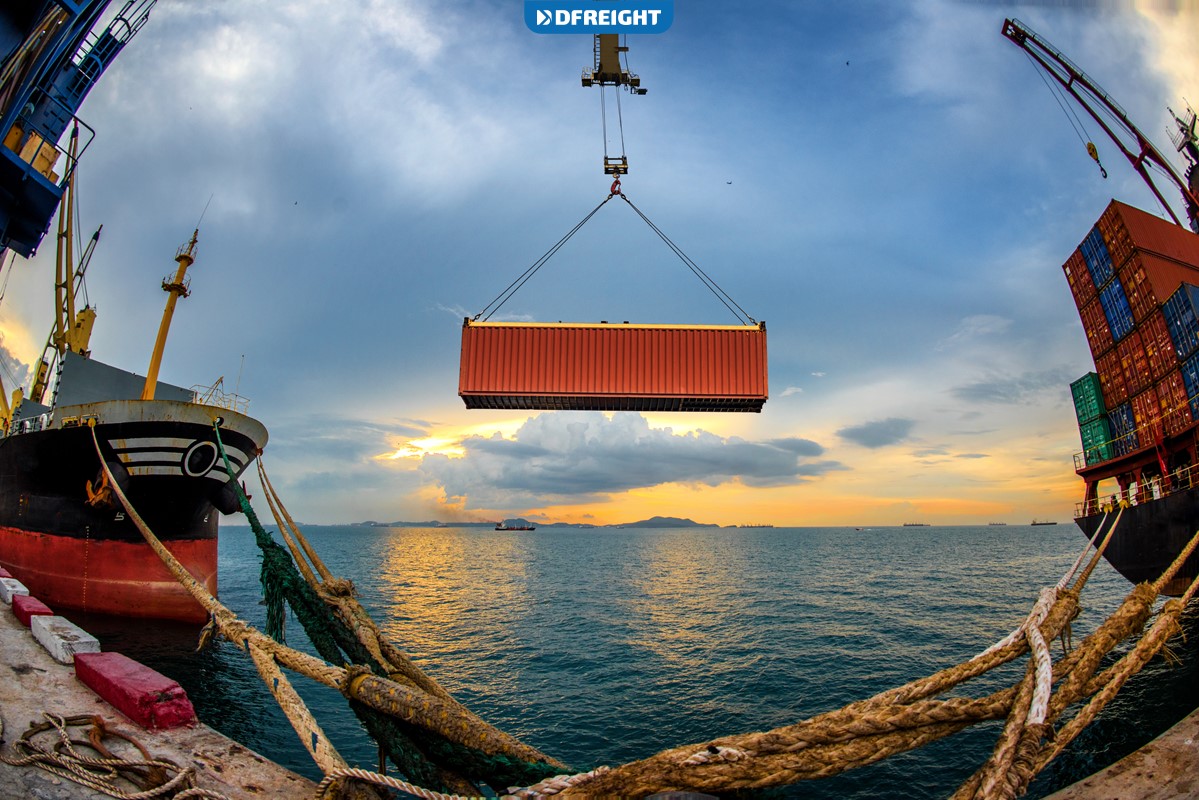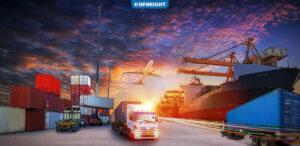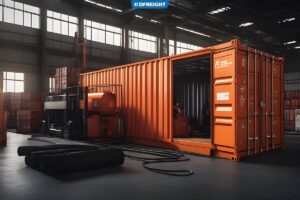When it comes to shipping, there are different types of parties involved. Each of these has a different role to play in the shipping process, and it is important to understand the difference between them.
DFreight is a leading international digital freight forwarder that services worldwide and provides you with an overview of the various shipping parties typically involved in the shipping process.
Table of Contents
What are Shipping Parties?
Shipping parties include the shipper, consignee, carrier, and any other party involved in the transfer of goods throughout the shipping process.
What is the Role of Each Party Within the Shipping Process?
Whether you are shipping different commodities or commercial merchandise, there are many shipping parties involved in the ocean freight process. To understand the process, it is important to get to know the different shipping parties involved.
Shipper/Exporter
A shipper or exporter is known as a party in charge of transporting goods from one area to another. This party is normally in charge of making sure that the products are appropriately packaged, labeled, and that all required paperwork is finished. The items’ transportation and any related expenditures may also fall under the purview of the shipper/exporter, who is also in charge of making those arrangements.
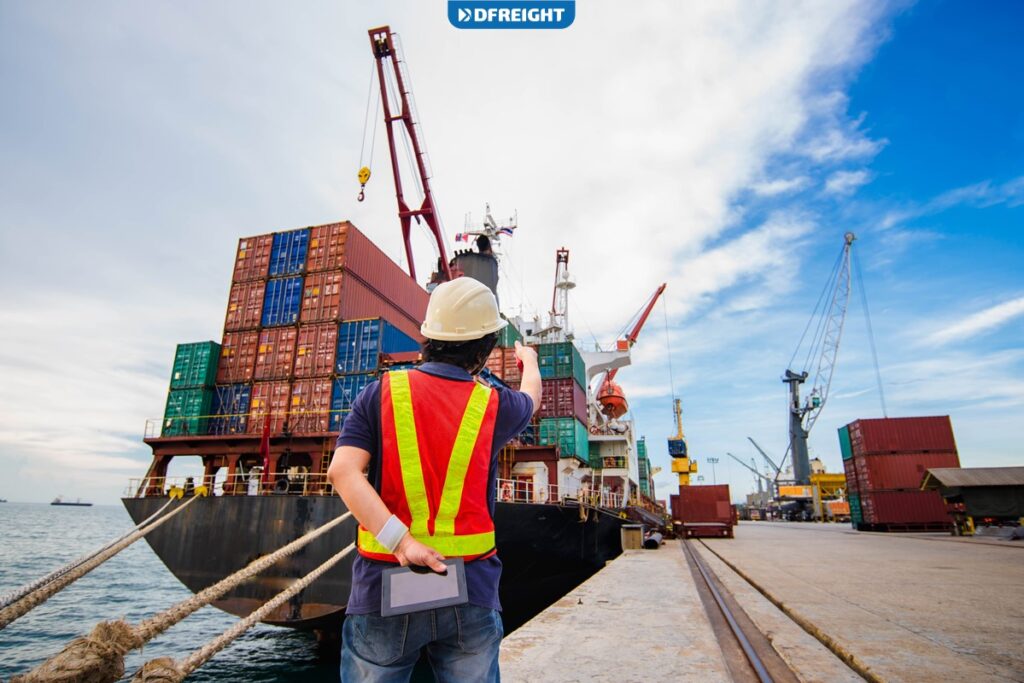
Consignee
A consignee is a person or organization that will receive the shipment of goods. The commodities must be accepted by the consignee, who is also in duty of ensuring that they are delivered to the proper location. The consignee might also be responsible for paying the shipping costs.
Shipping Carrier
the shipping carrier is the organization responsible for transporting the goods from one point to another. This can be done by sea, air, or land. They will pick up the goods from the shipper and deliver them to the receiver. The shipping carrier is responsible for the safety and security of the goods during transport. They are also responsible for complying with all applicable laws and regulations.
Notify Party
The person who will be informed when the package arrives at its destination is the notify party, who serves as the primary point of contact. The buyer, the consignee, a shipping agent, an interested party, or other people listed in the paperwork are all examples of possible notify parties. Usually, only when the individual is distinct from the consignee, specifying a notify party is necessary. Otherwise, the person who receives the notification of the shipment’s arrival is the consignee.
The notified party should typically receive the arrival information from the shipper or transportation. However, certain bill of lading documents contain provisions that release the shipper or carrier from accountability or duty in the event that notice is not given. Buyers or consignees should be on the lookout and make inquiries in order to guarantee a smooth pickup of the products from the destination port.
Freight Forwarder
A business that serves as a middleman between shippers and carriers is known as a freight forwarder. They manage the logistics of moving items between locations. It is the responsibility of freight forwarders to plan the transportation of products, bargain rates with carriers, and ensure that the commodities reach at their destination promptly and safely.
Freight forwarders offer a variety of additional services in addition to organizing transportation, including tracking shipments, offering insurance, and managing customs clearance. They frequently have a network of contacts in the port to port shipping sector, which enables them to negotiate the most advantageous pricing for their customers. Companies who need to transfer goods throughout the world might benefit from working with freight forwarders because they have a significant impact on the shipping sector.
Agent
In the capacity of a shipping party, an agent’s job is to make it easier to move products from one place to another. To organize the flow of products, an agent may collaborate with a number of shipping parties. Besides selling goods, an agent might also help with paperwork and customs clearance.
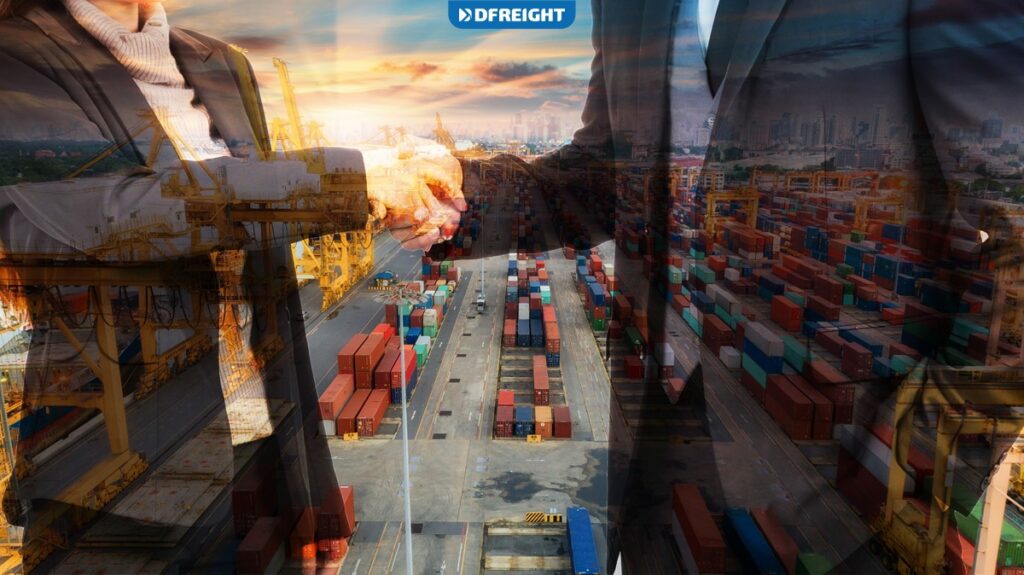
Customs Authorities
The Customs Authorities are crucial to international cargo shipping since they are in charge of collecting duties and taxes on commodities that are imported into a nation. They also play a role in ensuring that goods comply with import regulations and that they are not counterfeit or contraband.
Contact DFreight if you require assistance with a customs clearance agent in Dubai. In Dubai, one of the top companies offering customs clearance services is DFreight. From filling out the required papers to making arrangements for the payment of duties and taxes, we can assist you with every step of customs clearance.
Origin & Destination Agents
The management of the shipment at the point of origin is the responsibility of the origin agents. This covers everything, from confirming that all the necessary paperwork is in place to coordinating with the carrier.
Similar tasks are carried out by destination agents at the port of destination, where they ensure that the shipment is delivered promptly and safely.
While the carrier is in charge of the actual transportation of the goods, the Origin and Destination Agents are crucial to the successful operation of the shipment. They are the ones who guarantee that all the paperwork is in order and that the appropriate arrangements have been made with the carrier. The package might easily be delayed or even lost without them.
Insurers
The role of insurers as one of the shipping parties is to provide insurance coverage for the goods being shipped. This coverage can protect against loss or damage to the goods during transit. It can also provide protection against liability claims that may arise from the shipment of goods.

Conclusion
The shipping process involves a wide range of shipping parties, including the carrier, the shipper, and the consignee. The safe and effective shipping of the goods depends on the cooperation of all parties. You can make sure that your shipments are handled correctly and reach their destination on schedule by being aware of the responsibilities of each shipping party.
DFreight offers a convenient online platform that allows you to quote, book, and track your shipments all in one place. We work with a network of shipping partners to get your goods where they need to go and when they need to be there. Whether you’re shipping FCL, LCL, air, ocean, or road freight, we can help. To learn how to create shipment parties on the DFreight digital platform, Visit our Help Center.
What are the risks associated with being one of the shipping parties?
Risks associated with one of the shipping parties include the possibility of damage to or loss of the goods, delays in transportation, and liability for any charges incurred.
What are the different types of shipping parties?
There are several different types of shipping parties, each with its own unique responsibilities. Read the blog post for more information.
